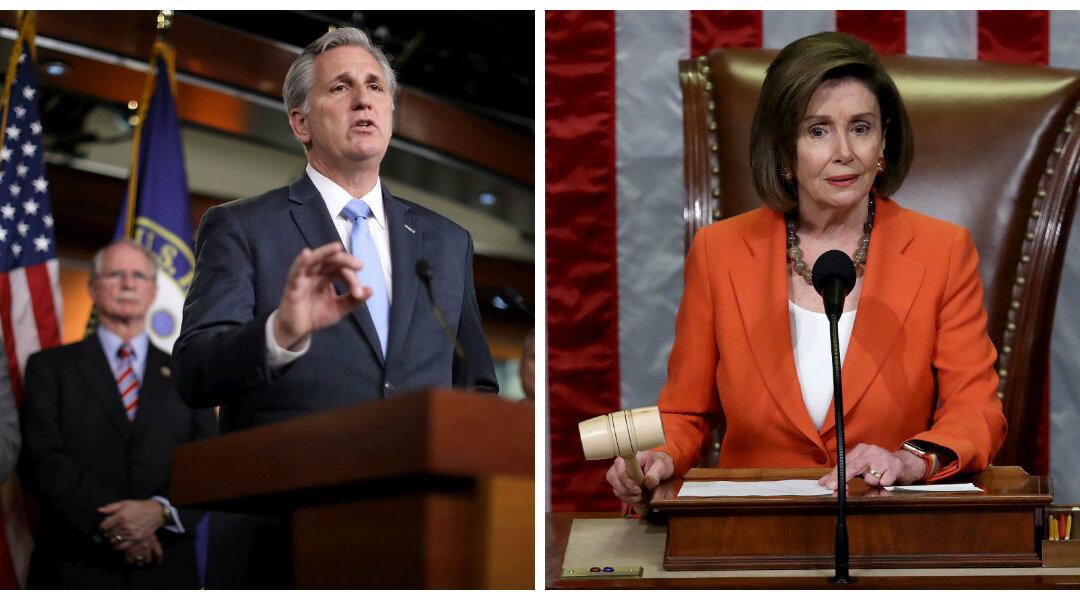House Republican leaders issued a response in a press conference following Thursday’s procedural vote on ground rules surrounding the impeachment inquiry into President Donald Trump.
“The only bipartisan vote on that floor was against,” House Minority Leader Kevin McCarthy (R-Calif.) said in a press conference after the vote.





